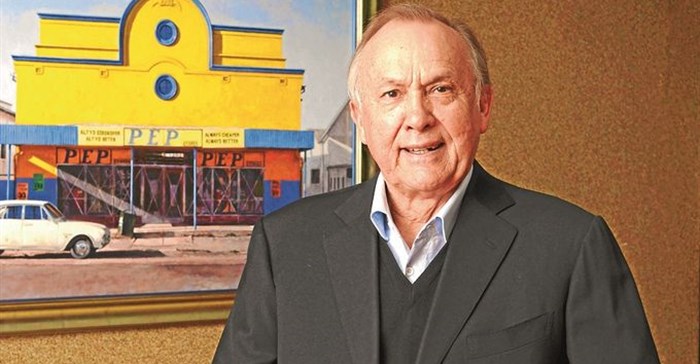
“The world of finance is more complex than ever and rapidly evolving rules and regulations mean that business leaders and entrepreneurs have to work harder to keep up,” says Mark Graham, associate professor in accounting at UCT, who runs the Finance for Non Financial Management programme at the UCT Graduate School of Business.
There is a sophisticated spectrum of financial tools available to managers and entrepreneurs, all of which were non-existent 20 years ago. In theory, this should make it easier to do business but, says this does not necessarily follow.
Graham says that improvements in financial reporting mean that companies are able to tell a better story of their offering and operations. “More data means more knowledge, leading to better decision-making, strategising and planning.” However, he cautions, you need to know how to interpret this data or it will remain meaningless.
“If you know where to look, it is possible to read the financial health of your business like a book. Critically, you can also spot when the numbers are not adding up.”
Changes in regulation are meant to make it more difficult for companies to pull the wool over the eyes of investors and stakeholders. Some recent important improvements include the fact that companies are now required to report on financial instruments like derivatives and exchange contracts, for example. The result is a much clearer picture of reported gains and losses and a much more accurate portrayal of a company’s financial standing.
And in January 2016, the International Accounting Standards Board (IASB) issued a new standard on lease accounting, which requires that every leased property or item (like an office building or even airplanes) be reported on as an asset on the statement of financial position. This means that any business, which uses an asset that they do not own, will need to determine whether or not the contract, which allows them to use the asset, contains a lease. This can have a significant impact on the way profits are reported on and, as a result, paint a much more realistic picture of how a business is operating.
Overstated revenues can be dangerously deceptive. There are many examples of companies that went belly-up after posting some spectacular revenues, says author and seasoned forensic accountant, Tracy Coenen, One of the best examples locally, is Leisurenet Ltd that was regarded as hugely successful company in the 1990s. The group comprised the Health & Racquet Club (which by 1999 was South Africa’s leading gym) as well as a number of smaller companies.
At the end of 1999, Leisurenet reported increased profits of 68% on the back of a revenue increase of 32%. Superficially, but in 2000 it imploded, resulting in one of the largest corporate collapses in South African history. It later became clear that the company was treating 75% of the revenue from a two-year gym contract as accruing in the first year, thereby overstating the profit of the company. It’s a trick known as “upfronting”; the practice of recognising revenue before it is properly earned.
UK supermarket franchise, Tesco was similarly embroiled in a scandal in 2014 after it was revealed that they had overzealously recognised rebates from suppliers. While it is acceptable for suppliers to offer supermarket chains rebates that are conditional on achieving certain sales targets and for these to be reported as revenue, in Tesco’s case, the estimate of these rebates was found to be overstated by £263m. The company had to reverse this overstated revenue, causing a significant drop in profit and damage to its reputation.
According to Graham, there are two general approaches to manipulating financial statements. It can either be by inflating current period earnings on the income statement by artificially inflating revenue and gains or by deflating current period expenses. This makes the company look better on paper.
“The second way is to do the exact opposite, which is to deflate current period earnings on the income statement by deflating revenue or by inflating current period expenses. There are many reasons why a company may want to appear weaker than it actually is – for example, it may want to discourage a potential buyer. Similarly, all of the bad financial information surrounding the company in one period could be transferred to the current period when the poor performance can be attributed to the current macroeconomic environment.”
A recent editorial in the Economist points out that despite the advance in rules and regulations and other financial tools, such ‘cooking of the books’ remains a serious challenge for business. Graham says that this means that it is vital that investors and stakeholders – including managers and business leaders – arm themselves with enough financial knowledge to be able to spot corporate fraud and put an end to it before it puts an end to the business.
This is one instance in which stakeholders can’t fake it until they make it. They need to learn the language of finance and find out what the numbers are trying to tell them.
The good news is that, the introduction of a uniform accounting regime around the world means that this language is now more consistent so a small investment of time can help give business leaders and entrepreneurs a basic map to the terrain. There are plenty of books and training courses available to support people on this journey he points out.
“It is a bit of a Catch-22. If you don’t know what you don’t know, you won’t know what is going on. And in the world of business, ignorance is not bliss – it is instead foolhardy and unnecessary,” he says.